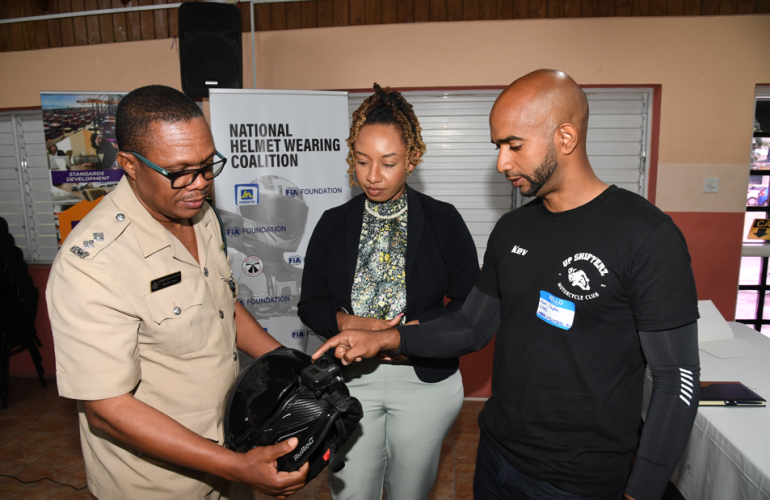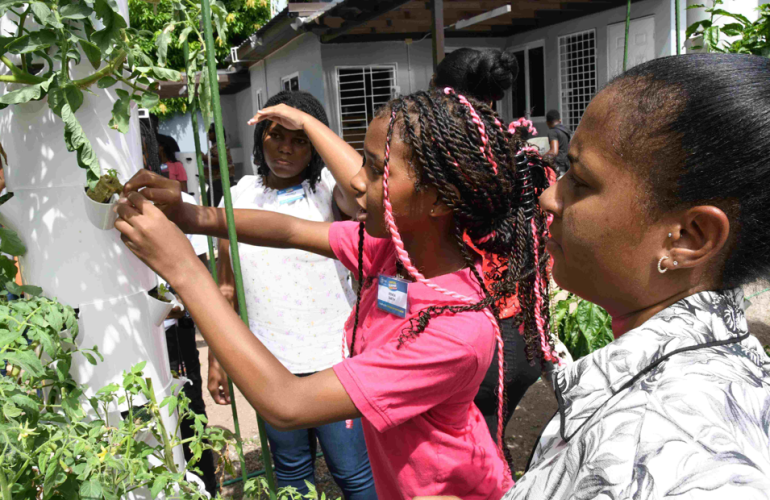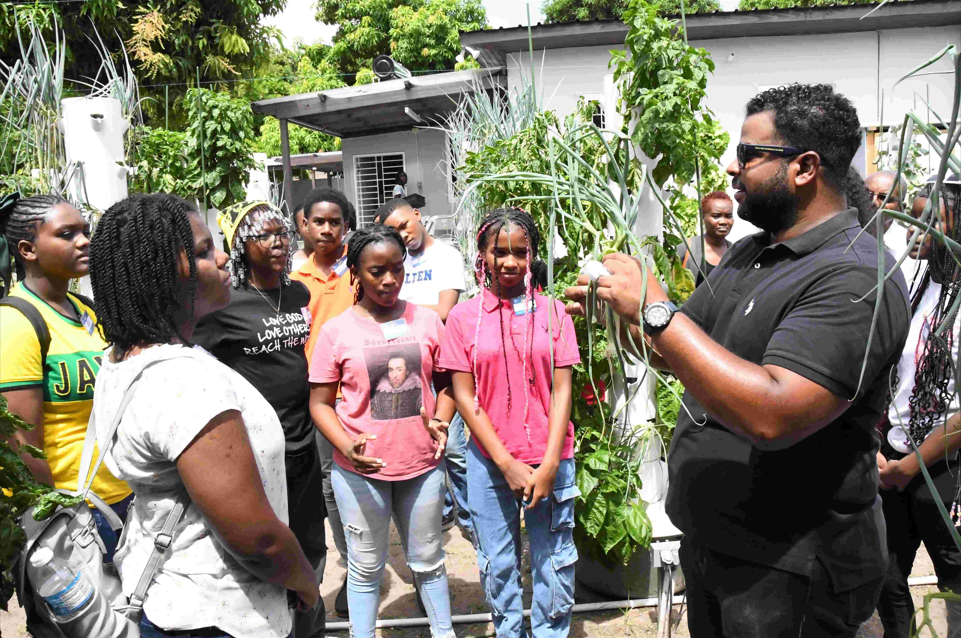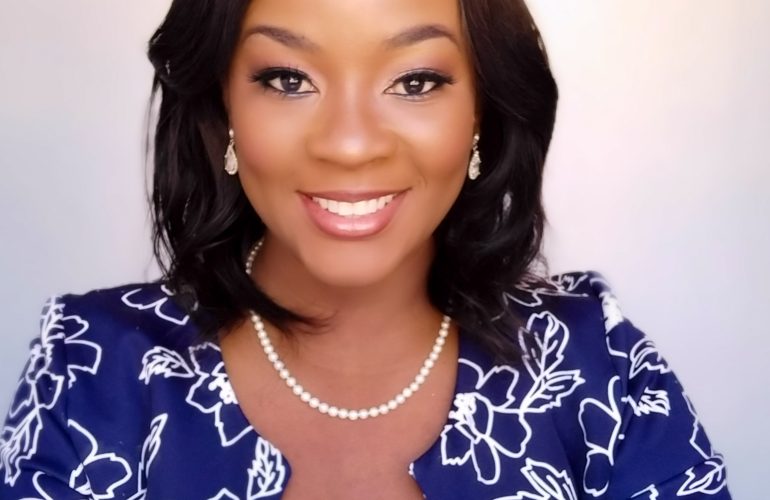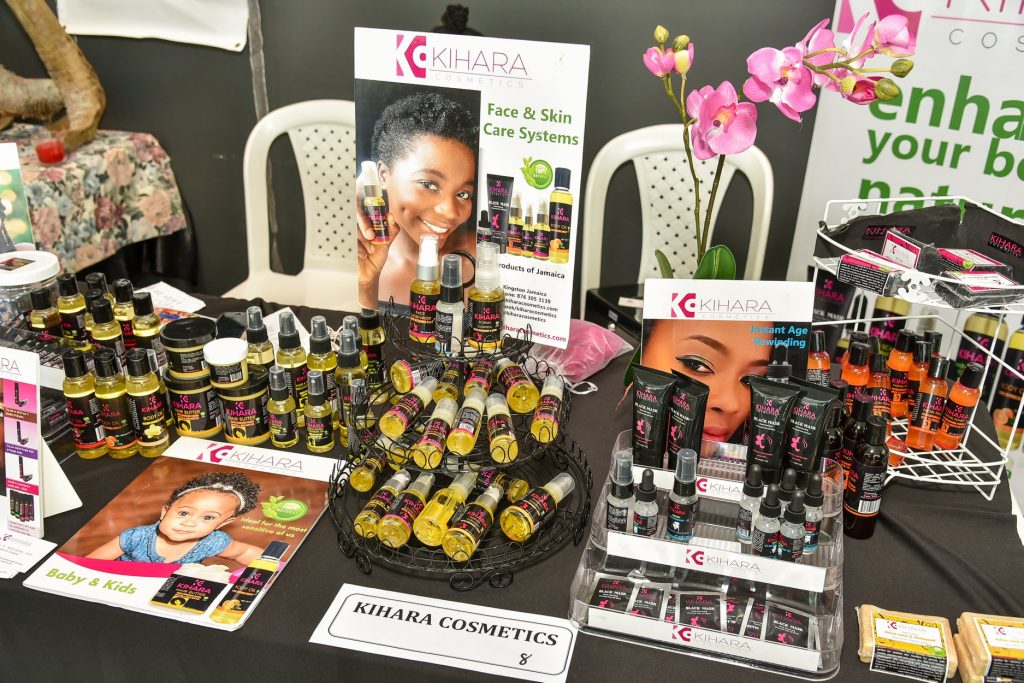‘Not All Helmets are Created Equal… Choose One with Safety Standards’
Photo Caption: Assistant Superintendent Dellon Lewis (left) and Kevon Clayton, member of the National Hemet Wearing Coalition examine a helmet during a planning session that discussed the development of a framework for helmet testing and regulation in Jamaica. The discussion took place a the Bureau of Standards Jamaica, recently. Looking on is Sydoney Preddie, project manager for road safety and road users at the JN Foundation.
Helmets are critical for safety, whether you’re riding a bike, motorcycle, or engaging in any high-risk activity that could result in injuries to the head. However, not all helmets are created equal and understanding the nuances can make the difference between safety and serious injury.
According to Dr Terry Smith, principal scientist at Galeatus and technical consultant for helmet safety supporting the JN Foundation National Hemet Wearing Coalition project, one of the most crucial aspects of a helmet is its compliance with a recognised safety standard.
Speaking to stakeholders in motorcycle safety at a recent workshop hosted by the project, Dr Smith explained that not all helmets meet the same safety standards.
Alluding to the four standards named in Jamaica’s Road Safety Act (RTA), he indicated a preference for the Department of Transportation (DOT) standards (the United States standard) or, the ECE 22 standard (the European Standard), which are recognised around the world as standards that provide excellent head protection for motorcyclists.
“These standards ensure the helmet will remain on your head and absorb significant impact energy during a crash,” he added.
He warned that there are online and brick-and-mortar retailers who sell what are known as “novelty helmets” that do not meet safety standards. There are also fake DOT labels being sold to put on these unsafe helmets.
“Novelty helmets are unsafe and will not protect you in the event of a crash. They should not be purchased and should not be worn while operating or riding on a motorcycle,” he explained.
Dr Smith, who is a technical consultant to the FIA Foundation, funders of the project, also noted that helmet fit is important. “A helmet that is too loose or too tight can compromise safety. We recommend trying on several helmets to find one that fits snugly without causing discomfort. The helmet should sit level on the head and low on the forehead, with the bottom edge about one to two finger widths above your eyebrows. The chin straps should fit comfortably under your chin when buckled,” he informed.
He explained that everyone’s head is shaped differently, and as such helmets come in different styles – round oval, intermediate oval and long oval. Therefore, it is important to determine the best helmet that fits the shape of one’s head before purchasing a helmet.
The material of a helmet greatly influences its effectiveness. Most helmets are made from expanded polystyrene (EPS) foam, which absorbs impact energy. Some higher-end models use materials like carbon fibre, which offer superior strength and lighter weight. The outer shell, usually made of polycarbonate or fibreglass, protects against penetration and distributes the impact forces over a large area.
Advancements in technology have led to innovations in helmet design. Concussion reducing technologies such as the Multi-directional Impact Protection System (MIPS) technology, for example, is becoming increasingly popular. These helmets feature a low-friction layer inside that allows the helmet to slide relative to the head, thus reducing the rotational forces that can cause brain injuries.
Dr Smith cautioned that a helmet that has been involved in an accident should be replaced immediately, even if it shows no visible signs of damage. The foam inside the helmet can compress, reducing its ability to absorb impact.
“Additionally, helmets should generally be replaced every five years, as exposure to sweat, UV rays, and other environmental factors can degrade the materials over time,” he explained.
Proper care can extend the life of your helmet. Avoid storing it in direct sunlight or in your car, where temperatures can soar and degrade the materials. Clean the helmet with mild soap and water, avoiding harsh chemicals that can damage the interior foam and straps.
Sydoney Preddie, project manager for road safety and road users at the JN Foundation, underscored the importance of wearing a helmet.
“The National Helmet Wearing Coalition is committed to educating motorcycle drivers to identify and correctly use standardised helmets to increase their chances of survival in the event of a crash. We continue to advocate for these helmets within the Jamaican market. Affordable certified standardised helmets are available from numerous international suppliers, making this task achievable within the Jamaican context.”

